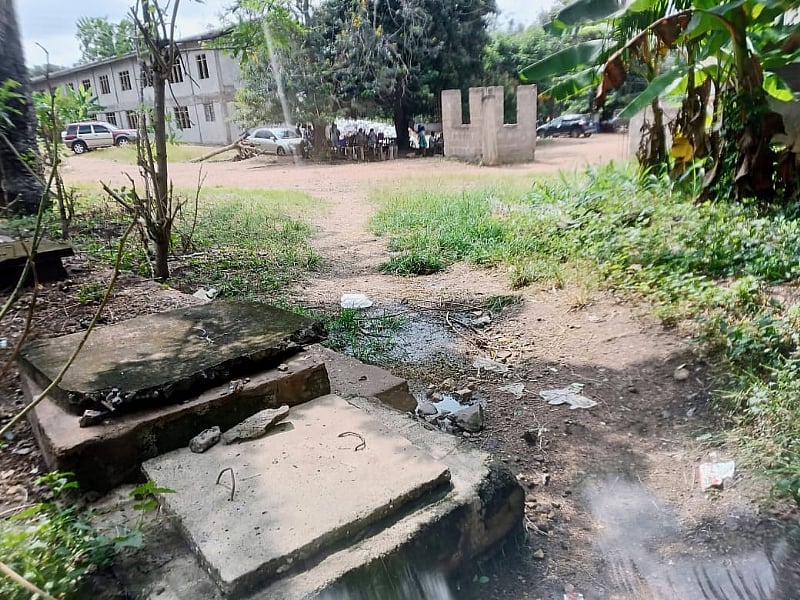The Regional Model School and Kabore School Complex in Ho, Ghana, are facing a serious public health threat due to a leaking septic tank at a nearby private residence. Faecal matter from the failing system is flowing towards the school’s playing grounds, raising significant concerns among parents and community members about the potential for a cholera outbreak among the student population. The situation underscores the precarious sanitation conditions in the area and the challenges faced by local authorities in responding effectively to such emergencies. The delayed response has ignited fear and frustration within the community, highlighting the urgent need for immediate intervention to prevent a potential health crisis.
The gravity of the situation lies in the direct exposure of school children to untreated faecal matter, a known source of waterborne diseases such as cholera, dysentery, and typhoid fever. Children are particularly vulnerable to these diseases due to their developing immune systems and the close proximity they share in a school environment. The onset of the rainy season further exacerbates the risk, as increased rainfall can spread contaminated water more easily, potentially leading to a rapid outbreak. Parents have voiced their anxiety about the potential consequences of inaction, emphasizing the urgency with which the situation demands attention. They have appealed to multiple authorities, including the Ho Municipal Chief Executive, the Municipal Environmental Health Office (MEHO), the Ghana Health Service, and the Ghana Police Service, to intervene and prevent what could become a full-blown public health crisis.
Despite repeated complaints from parents and a formal report lodged with the MEHO, action has yet to be taken to address the leaking septic tank. This inaction stems primarily from resource constraints within the MEHO, particularly a lack of logistical support and mobility challenges that have prevented officers from inspecting the site. This highlights a significant hurdle in addressing public health threats in the region, as a lack of resources can critically impair the ability of local authorities to respond effectively to emergencies. The delay in response further fuels the anxiety within the community and erodes public trust in the capacity of local institutions to safeguard the health and well-being of residents.
The community’s growing frustration underscores the vital link between sanitation and public health. The leaking septic tank represents a clear and present danger, with the potential to escalate into a widespread health crisis if left unchecked. The inaction by authorities, while attributed to resource constraints, nonetheless exposes a critical vulnerability in the region’s public health infrastructure and preparedness. The ongoing situation emphasizes the importance of proactive measures and adequate resource allocation to address sanitation issues before they evolve into major health emergencies. The community’s plea for immediate intervention reflects their understanding of the potentially dire consequences of further delays.
The impending rainy season adds another layer of complexity to the situation, as increased rainfall threatens to accelerate the spread of contamination. This underscores the time-sensitive nature of the issue and the urgent need for immediate action to mitigate the risks. The potential for a widespread outbreak highlights the importance of preventative measures and the need for a robust public health response system capable of addressing such emergencies swiftly and effectively. The continued inaction risks not only the health of the school children but also the broader community, as the contamination could potentially spread beyond the immediate vicinity of the school.
Stakeholders, including the relevant authorities and the owner of the property with the faulty septic system, are expected to convene to discuss and implement immediate interventions. This meeting represents a crucial step towards resolving the issue and protecting the health and safety of the pupils and residents in the affected area. The community’s focus is on containing the threat and preventing a public health crisis. The meeting is expected to outline a plan of action to address the leaking septic tank, emphasizing the critical need for a swift and effective solution. The outcome of this meeting will be crucial in determining the immediate future and preventing what could become a devastating health emergency within the community.














